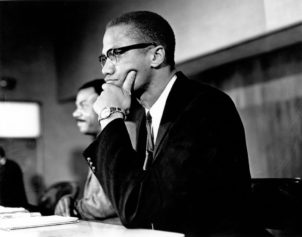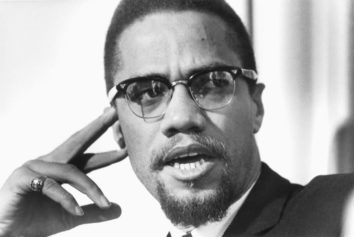Two men who spent two decades behind bars for the assassination of civil rights leader Malcolm X will be awarded $26 million in a settlement from New York City.
Muhammad A. Aziz and Khalil Islam spent more than 20 years in prison for killing the Black leader. However, their convictions were reversed after Manhattan district attorney Cyrus R. Vance Jr. found that evidence that could have freed the men was withheld as part of a coverup by law enforcement agencies, including the FBI.

Both men were released on parole in the 1980s, but Islam died in 2009. The multiple-million-dollar award will be split between Aziz, 84, and Islam’s estate.
“It’s tragic that (Islam) died never knowing that his name would be cleared,” said attorney David Shanies. “So, given the importance of the case and the immense length of time that this wrongful conviction lingered, it was important for the government to act quickly to do what was within its power to make it right.”
Attorneys for the men say the settlement reflects the scope of “misconduct” by both NYPD and the FBI officials involved in the case.
“There’s no amount of money that could ever correct what was robbed from Muhammad and Khalil,” attorney Deborah Francois told Gothamist. “That being said, we’re pleased the city saw an opportunity to act swiftly.”
Reports show there were speculations for decades about who killed Malcolm X. Several other attempts were made on the former Nation of Islam leader’s life prior to the February 1965 shooting after his speech at an Upper Manhattan ballroom. Two men walked up to the podium and shot Malcolm at point-blank range after a fight broke out.
One of the Black leader’s top aides went to the FBI shortly after and told them he believed there was a larger conspiracy, according to State University of New York College at Cortland associate professor Brice Smith. The aide was found dead in his apartment days later. His cause of death was changed two times from suicide to a drug overdose to natural causes.
“Historians had long determined that these two men were wrongly convicted,” Barry Scheck, co-founder of the Innocence Project, said.

Reports show there was no physical evidence linking Aziz or Islam to the ballroom, and witnesses said both men were home at the time of the shooting. Talmade Hayer was in the ballroom and confessed to the killing and excluded Aziz and Islam from the crime. In 1977, Hayer submitted an affidavit naming four other accomplices, but the New York Supreme Court ruled the new evidence was not sufficient to reopen the case, reports show.
“Their wrongful convictions were the direct result of government misconduct by both the NYPD and the FBI,” Francois said. “That was an open secret, but what the exoneration showed was definitive proof through NYPD reports and FBI documents [that] both had a treasure trove of exculpatory information.”
The exonerations of the two men were a result of a nearly two-year investigation. The district attorney found that former FBI director J. Edgar Hoover directed FBI agents to order “multiple witnesses not to tell police or prosecutors that they were, in fact, FBI informants.” Many witnesses gave conflicting testimonies in the case.
“This settlement brings some measure of justice to individuals who spent decades in prison and bore the stigma of being falsely accused of murdering an iconic figure,” Nick Paolucci, a spokesman for the New York City Law Department, said in a statement.
Ameen Johnson, one of Islam’s sons said he never thought he would “live to see the day” that his father’s name would be cleared.
Johnson believes the stress, drama and trauma and wrongful incarceration of his father led to his father’s and mother’s deaths.
“The effects of this removed them from our lives,” Ameen Johnson said. It also affected his own childhood, he said, as others often branded his father as a “killer” and he sought to defend Mr. Islam against that portrayal.


